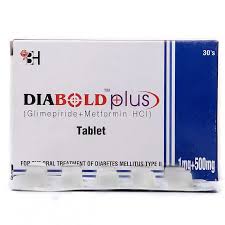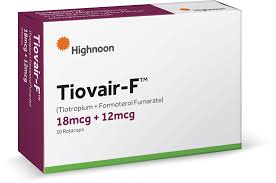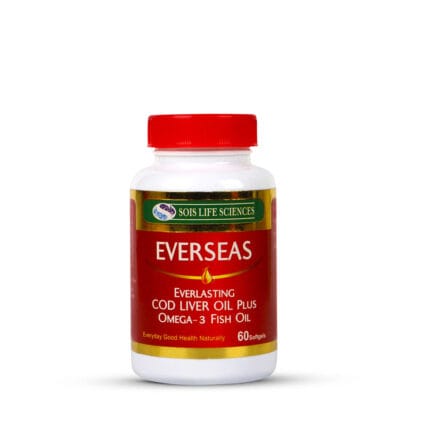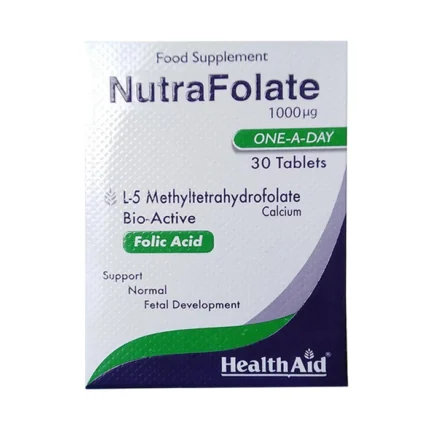Description
The mechanism of action of the combination therapy involving Metformin 500mg and Glimepiride 1mg Tablet is twofold. Metformin primarily works by reducing glucose production in the liver through the inhibition of gluconeogenesis and glycogenolysis. It also enhances insulin sensitivity, allowing the body’s own insulin to work more effectively at reducing blood sugar levels. On the other hand, Glimepiride, a sulfonylurea, stimulates insulin release from pancreatic beta cells. This insulin release is dependent on the presence of glucose, ensuring a controlled and targeted response. By combining these two mechanisms, the tablet effectively lowers blood glucose levels in patients with type 2 diabetes, offering better glycemic control than either medication used alone.
Ingredients
Metformin, GlimepirideDrug Class
Antidiabetic combination.
Dosage Form
Oral
Uses
The following are the uses of Metformin 500mg, Glimepiride 1mg Tablet:
- Used for controlling blood sugar levels in type 2 diabetes.
- Used to enhance insulin sensitivity and reduce glucose production in the liver.
- Used to improve glucose uptake and utilization by body cells.
- Used for weight management in diabetic patients.
- Used to lower the risk of diabetes-related complications.
- Used to manage insulin resistance and stabilize blood sugar fluctuations.
- Used as part of a comprehensive diabetes treatment plan.
- Used to delay or prevent the progression of prediabetes to type 2 diabetes.
Dosage
Tailoring Treatment for Optimal Health, Prescribed Medication Dosage is:
- For Glimepiride 1mg, the standard dose is 1-2mg per day.
- For Metformin Hydrochloride 500mg, the initial dose is usually 500mg 3 times a day with meals.
In case of Overdose
In the case of an overdose of Metformin 500mg and Glimepiride 1mg tablets, it is important to recognize the potential symptoms. These may include severe nausea, vomiting, abdominal pain, and in extreme cases, lactic acidosis. Prompt medical attention is required, and individuals should not hesitate to seek emergency care, especially if symptoms worsen. It is crucial to act quickly, as early intervention can significantly impact the management and outcome of an overdose.
Missed Dose
In the case of a missed dose of Metformin 500mg, take it as soon as you remember, but skip the missed dose if it’s almost time for your next scheduled dose. For Glimepiride 1mg tablets, if a dose is missed, take it as soon as possible, but if it’s close to the time for your next dose, skip the missed dose and continue with your regular dosing schedule. It’s important not to double the dose to make up for a missed one. If you frequently miss doses, consider setting reminders or using a pill organizer to help you stay on track.
How To Use
To take the Metformin 500mg and Glimepiride 1mg Tablet, swallow the tablet whole with a full glass of water, preferably during or after a meal, exactly as prescribed by your doctor, typically twice a day, or as directed on the medication label.
When Not to Use
Here are the conditions and situations when Metformin 500mg and Glimepiride 1mg Tablet should not be taken:
- Should not be used in patients with a known allergy to Metformin, Glimepiride, or any other sulfonylurea drugs.
- Contraindicated in patients with diabetic ketoacidosis.
- Not suitable for individuals with severe kidney or liver disease.
- Should not be used if you have a history of a serious allergic reaction to any sulfonamide medication.
- Avoid if you have a condition that can cause a severe dehydration state.
- Not recommended for individuals with respiratory diseases or lung infections.
- Should not be taken if you have a history of heart disease or blood vessel disease.
- Contraindicated during pregnancy and breastfeeding.
- Not suitable for individuals with a history of a blood disorder called glucose-6-phosphate dehydrogenase (G6PD) deficiency.
- Avoid if you have recently had a heart attack or stroke.
- Should not be used if you are scheduled for a surgery or any X-ray/CT scan procedure with a contrast dye.
Side Effects
The side effects of Metformin 500mg, Glimepiride 1mg Tablet may include:
- Nausea and vomiting
- Diarrhea or stomach pain
- Metallic taste in the mouth
- Loss of appetite
- Dizziness or lightheadedness
- Skin rashes or itching
- Muscle pain or weakness
- Low blood sugar (hypoglycemia)
Precautions & Warnings
Following are the precautions and warnings for Metformin 500mg, Glimepiride 1mg Tablet:
- This medication should not be used in patients with a known allergy to Metformin or Glimepiride or any other sulfonylurea drugs.
- Regular monitoring of kidney function is necessary, and caution should be exercised in patients with kidney disease.
- Patients with liver disease should be closely monitored as it may increase the risk of lactic acidosis.
- Alcohol consumption should be avoided or limited as it can increase the risk of hypoglycemia.
- Elderly patients may be more susceptible to hypoglycemic effects and should be monitored closely.
- Patients should be educated about the symptoms of hypoglycemia and advised to carry glucose tablets or sugar sources.
- Inform your doctor if you have a history of heart or blood vessel diseases, as Glimepiride may increase the risk of cardiovascular events.
- It is important to maintain a balanced diet and follow the prescribed dosage to minimize the risk of side effects.
Drug Interactions
Following are the drug interactions for Metformin 500mg, Glimepiride 1mg Tablet:
- Concomitant use with other glucose-lowering medications, such as insulin or sulfonylureas, may increase the risk of hypoglycemia.
- Alcohol consumption can increase the risk of lactic acidosis when taking Metformin.
- Glimepiride may interact with beta-blockers, increasing the risk of hypoglycemia and masking the symptoms of low blood sugar.
- Nonsteroidal anti-inflammatory drugs (NSAIDs) can reduce the effectiveness of Glimepiride and Metformin, leading to poor blood sugar control.
- Corticosteroids and some diuretics can increase blood glucose levels, requiring careful monitoring and dose adjustments.
- Certain medications, like rifampicin, can decrease the effectiveness of Glimepiride by increasing its metabolism.
- Metformin may interact with contrast agents used in medical imaging, increasing the risk of kidney damage.
- Caution is advised when taking Glimepiride with ACE inhibitors, as it may lead to an excessive drop in blood pressure.
Food Interactions
Following are the food interactions for Metformin 500mg and Glimepiride 1mg Tablet:
- Alcohol consumption should be limited or avoided as it can increase the risk of hypoglycemia, especially with Glimepiride.
- Grapefruit and grapefruit juice should be avoided as they may interact with Glimepiride, affecting its metabolism and potentially increasing the risk of side effects.
- Avoid high-fat meals as they can delay the absorption of Glimepiride, leading to unpredictable blood glucose control.
- Metformin may cause a decrease in vitamin B12 absorption, so consider vitamin B12 supplementation if long-term Metformin therapy is required.
- Maintain a consistent carbohydrate intake and avoid excessive sugar consumption to prevent blood sugar spikes.
- Monitor caffeine intake as it can affect blood sugar levels and potentially interact with Glimepiride.
- Follow a balanced diet as recommended by a healthcare professional to manage blood sugar levels effectively.
- Avoid or limit the use of herbal supplements without medical advice, as some may interact with these medications.
Storage/Disposal
Metformin 500mg, Glimepiride 1mg Tablets should be stored in a cool and dry place, preferably at room temperature, ensuring protection from light and moisture. The tablets should be kept in their original container, tightly sealed, to maintain their integrity and effectiveness. It is crucial to store medications away from heat sources like ovens or radiators, as extreme temperatures can degrade the medication. Regularly check the expiration date, and if the tablets are expired or no longer needed, proper disposal is essential. Avoid flushing or pouring them down the drain; instead, consult a pharmacist or healthcare professional for guidance on safe disposal methods. Keep the medication securely stored and out of the reach of children to prevent accidental consumption.
Quick Tips, if any
Following are the quick tips for Metformin 500mg, Glimepiride 1mg Tablet:
- Always take the medication as directed by your doctor; do not alter the dosage.
- Swallow the tablet whole with a full glass of water; do not crush or chew.
- Maintain a consistent schedule for taking the tablet to ensure effectiveness.
- Avoid consuming alcohol while on this medication, as it may interact negatively.
- Inform your doctor about all medications you are taking to prevent adverse reactions.
- Regularly monitor your blood sugar levels as instructed by your healthcare provider.
- Store the tablets in a cool, dry place, away from direct sunlight and moisture.
Laboratory Screening
When taking both Glimepiride and Metformin Hydrochloride it is important to have regular blood tests so that you and your healthcare provider can monitor how well your blood sugar levels are being controlled, and ensure that these drugs are not causing unwanted side effects. These tests include regular checks of your blood sugar levels both when fasting and after meals. It is also important to have checks of your Hemoglobin A1c, which measures your blood sugar levels over the previous 2-3 months. Because Metformin has been associated with lipid levels in the blood, it is crucial to check levels of cholesterol, triglycerides, and LDL and HDL cholesterol. Given that Metformin is excreted through the kidneys it is important to monitor kidney function with regular tests of serum creatinine and BUN levels. Other electrolytes such as potassium, sodium and calcium should also be monitored to ensure proper balance, especially if the patient has other medical conditions that can affect this. Given the way these two drugs can affect blood pressure, it is important to periodically monitor this as well. All of these tests, in conjunction with a consultation with your healthcare provider, will help to ensure that your glucose levels remain stable while taking these medications.
Diabold Plus 1/500 mg (Glimepiride+Metformin) Tab 30’s
₨ 10
30 in stock


Get Your Healthcare Delivered Nationwide!
No matter where you reside in Pakistan, medlife.pk brings your healthcare essentials straight to your doorstep! We partner with trusted shipping companies like TCS, M&P, LEOPARD Courier, Trax, and Call Courier for nationwide delivery.
For ultimate convenience, enjoy Cash on Delivery (COD) with a flat rate of Rs.299 across Pakistan. Prefer to pay upfront? Orders over Rs.3,000 receive free shipping when you pay with Bank Transfer, JazzCash, Easypaisa, or Credit/Debit Card. And the perks don't stop there! Orders exceeding Rs.5,000 with advance payment not only get free shipping, but also earn you a discount coupon for your next medlife.pk purchase.
Rest assured, our team meticulously packs and ships your order for safe arrival, ensuring you receive the genuine products you deserve. So, browse our selection, choose your payment method, and get ready to experience the medlife.pk difference! Happy shopping!





















Reviews
There are no reviews yet.